Adipocyte inflammation is essential for healthy adipose tissue expansion and remodeling
- PMID: 24930973
- PMCID: PMC4079756
- DOI: 10.1016/j.cmet.2014.05.005
Adipocyte inflammation is essential for healthy adipose tissue expansion and remodeling
Abstract
Chronic inflammation constitutes an important link between obesity and its pathophysiological sequelae. In contrast to the belief that inflammatory signals exert a fundamentally negative impact on metabolism, we show that proinflammatory signaling in the adipocyte is in fact required for proper adipose tissue remodeling and expansion. Three mouse models with an adipose tissue-specific reduction in proinflammatory potential were generated that display a reduced capacity for adipogenesis in vivo, while the differentiation potential is unaltered in vitro. Upon high-fat-diet exposure, the expansion of visceral adipose tissue is prominently affected. This is associated with decreased intestinal barrier function, increased hepatic steatosis, and metabolic dysfunction. An impaired local proinflammatory response in the adipocyte leads to increased ectopic lipid accumulation, glucose intolerance, and systemic inflammation. Adipose tissue inflammation is therefore an adaptive response that enables safe storage of excess nutrients and contributes to a visceral depot barrier that effectively filters gut-derived endotoxin.
Copyright © 2014 Elsevier Inc. All rights reserved.
Figures
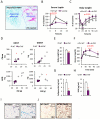
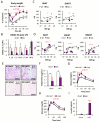
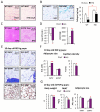
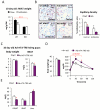

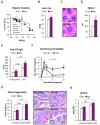
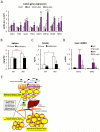
Comment in
-
Obesity: Rethinking inflammation and adipocyte homeostasis.Nat Rev Endocrinol. 2014 Aug;10(8):446. doi: 10.1038/nrendo.2014.103. Epub 2014 Jul 1. Nat Rev Endocrinol. 2014. PMID: 24981459 No abstract available.
References
-
- Engelman JA, Berg AH, Lewis RY, Lisanti MP, Scherer PE. Tumor necrosis factor alpha-mediated insulin resistance, but not dedifferentiation, is abrogated by MEK1/2 inhibitors in 3T3-L1 adipocytes. Mol Endocrinol. 2000;14:1557–1569. - PubMed
Publication types
MeSH terms
Substances
Grants and funding
LinkOut - more resources
Full Text Sources
Other Literature Sources
Molecular Biology Databases

